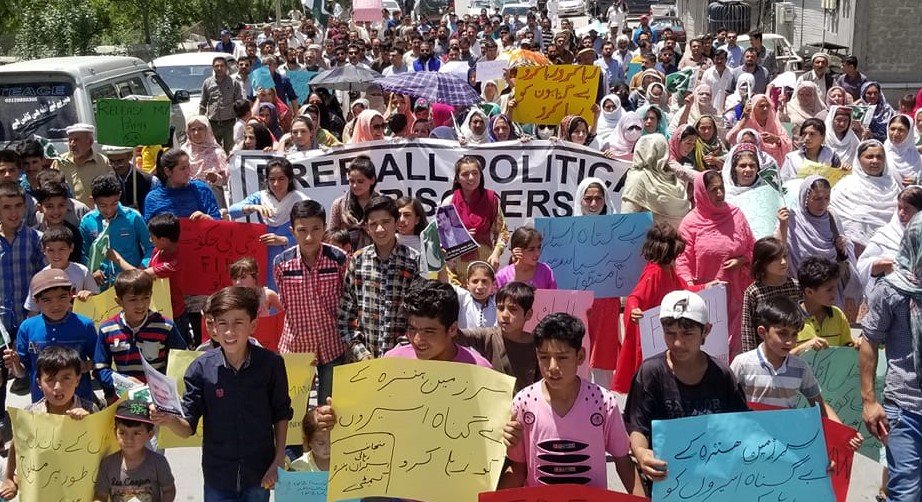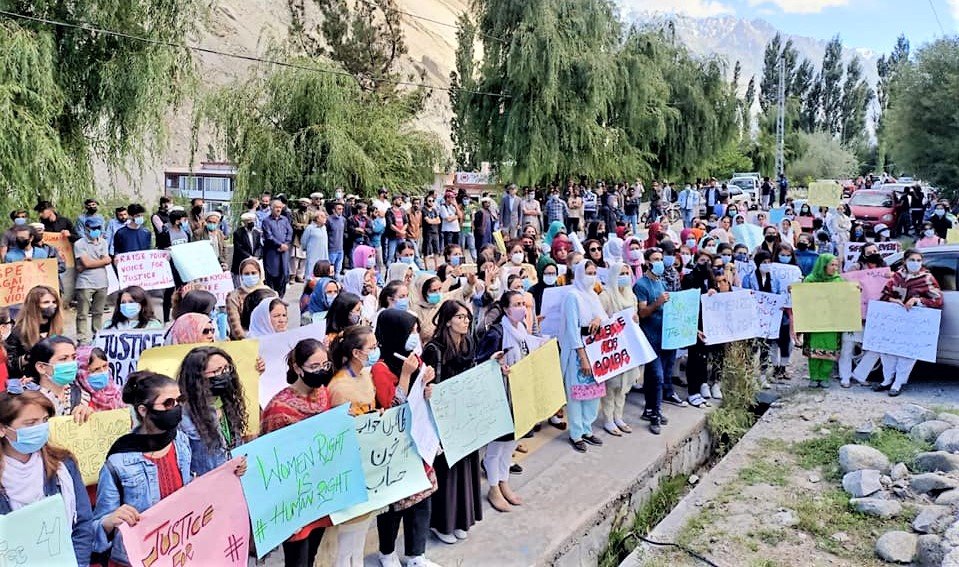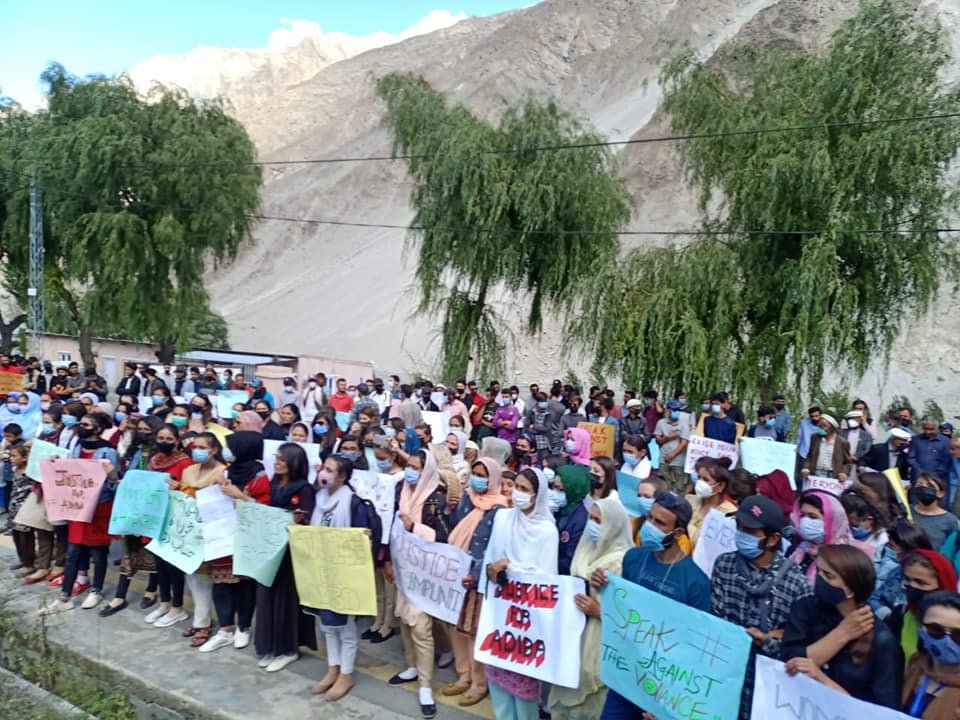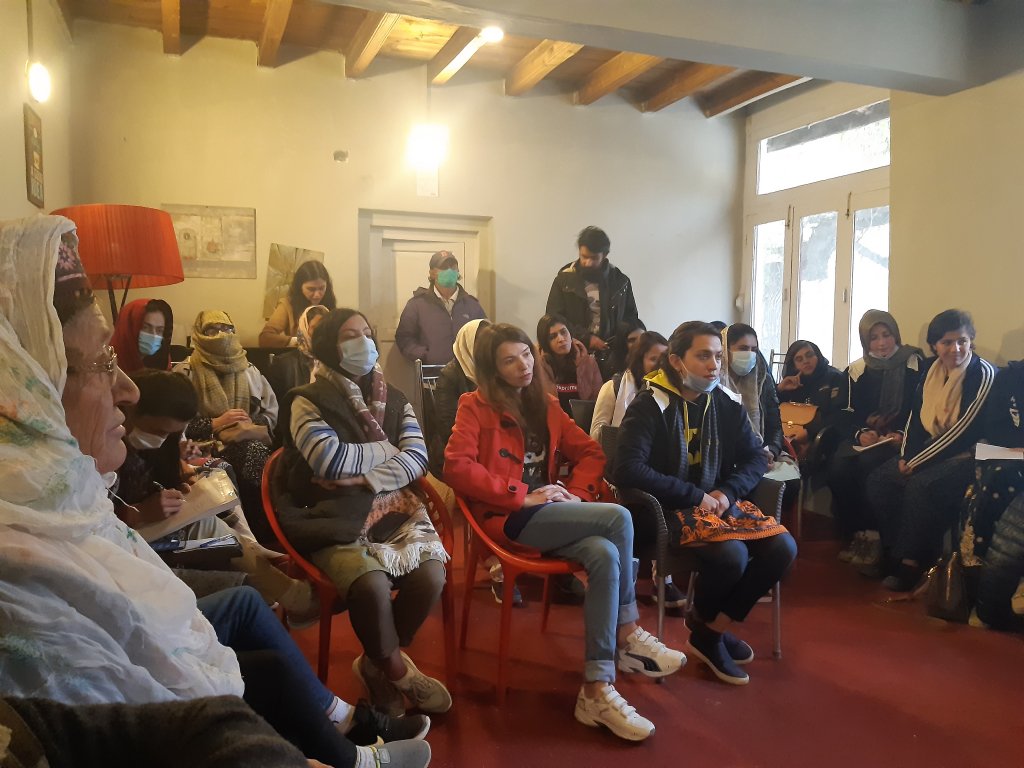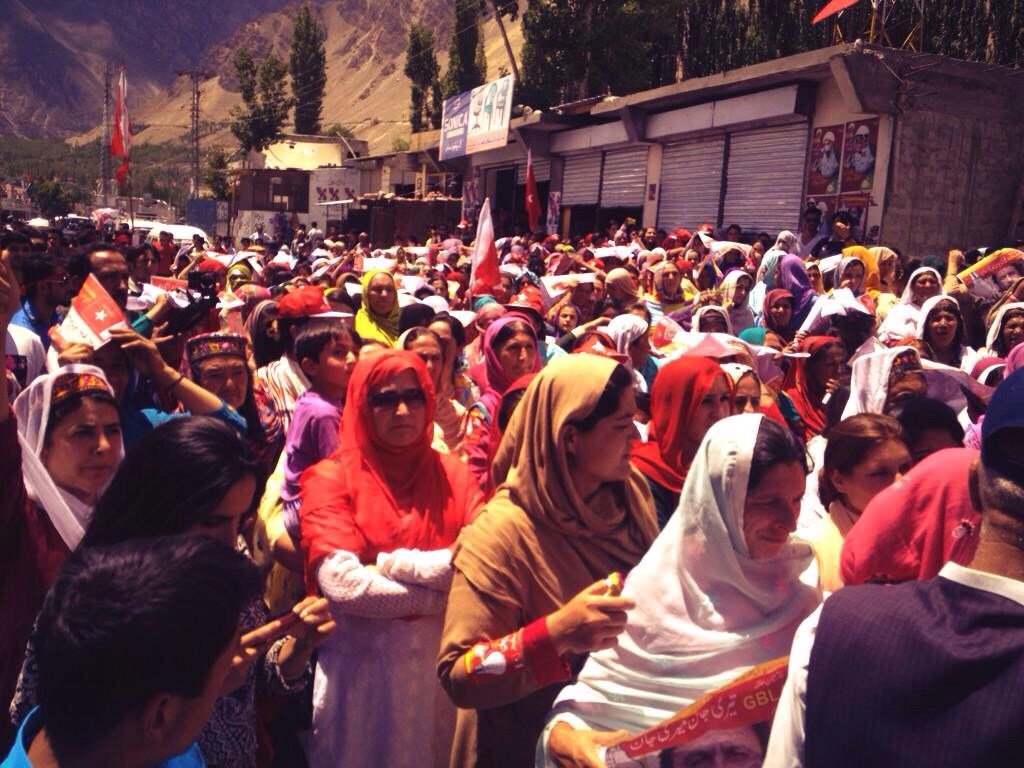by Kosar Bano, Dr Reshma Parveen, & Rozina Ahmed

International Working Women’s Day (IWWD) is celebrated every year on March 8 to claim public spaces, highlight women’s struggle for equal rights in political, social, economic, and cultural spheres and recognize their achievements around the World.
In Pakistan, various feminist and women’s rights organizations have been celebrating IWWD for many years by organising various events to acknowledge women’s successes, spotlight their issues and give recommendations to successive governments to improve living and working conditions for women.
Since 2018, IWWD got significant traction when the Aurat Azadi March was arranged by Women Democratic Front (WDF) in Islamabad and Aurat March by other organisations in Karachi and Lahore. Women of Gilgit-Baltistan in a similar fashion celebrate the day with the support of the government of Gilgit-Baltistan, INGOs, NGOs and other political and civil society organizations.

Women of Gilgit-Baltistan’s struggle dates back prior to the start of the march when in 2015, women professionals representing almost all professions and fields gathered and brainstormed about working women’s issues. This activity was carried out by dividing participants into groups according to their interests and expertise. They not only identified issues but came up with strategies and solutions which were presented to the government of the time (PML-N) in the form of a Charter of Demand (COD) which underwent various phases and changes. Working Women Group which is an online platform is engaged in discussing issues of women and seeks solutions from its members.
Similarly, Girls Ražek, a women-led virtual platform also came into existence. It is striving to deconstruct stereotyping of women and develop an inclusive society by creating awareness about social justice, gender-equity and catering well-being of women and people in disadvantaged positions.
The platform initiated a public debate on women’s participation in the democratic process and demanded substantial representation of women in political parties and parliament.
It organized massive protest rallies in GB, Islamabad and Karachi against the brutal murder of a young married woman Adiba in Shimshal and in rising incidents of domestic violence and femicide. women activists also organised protests outside Gilgit-Baltistan Assembly in Gilgit against harassment on campus at Karakoram International University.
In addition, the Women’s Rights Movement and Gilgit-Baltistan Feminist Collective joined hands, reviewed, amended, improved and contextualised the COD from time to time and presented it at various forums with stakeholders.
This year, women of Gilgit-Baltistan known for their stance against patriarchal structures, biased attitudes, discriminatory laws for an equitable and inclusive society, gathered under an umbrella platform ‘Gilgit-Baltistan Women Circle’ to make concerted efforts in achieving their set objectives. Members of this group will participate in marches scheduled in cities/countries like Karachi, Islamabad, Lahore and UN headquarters in New York apart from organizing various events in different cities of Pakistan.
The Charter of Demand
The COD drafted by the members seeks a 30 per cent increase in quota for women in all public and private sector jobs; equal pay, facilities, conducive safe and enabling working environment for women to work productively in all kinds of jobs; an end to restrictions on women’s movement, employment or other activities.
The charter also seeks the removal of all obstacles to girls’ education and make education free and compulsory up to matric level.
All the public infrastructures should be inclusive of women, people with disabilities and the trans community; separate washrooms for women and child care facilities in every organization including educational institutes must be ensured; maternity breaks in all institutions should follow international standards. All basic health facilities should be provided to women including three months maternity leave with salary and another three months with half salary. Women should be given three medical leaves every month.
The COD also seeks the provision of opportunities and space for women in sports and cultural activities.
It demands that the safety and security of women at home, in offices, on the roads and in public spaces must be ensured. The COD wants the elimination of anti-woman misogynistic comments, concepts, traditions and customs under the guise of culture and religion in public and private spheres. A public awareness campaign should be launched among the people against anti-women misogynistic comments and words in public discourse.
The charter demands legislation on curbing sexual harassment of women and gender crimes in all public and private organizations, educational institutions and the formation of anti-harassment committees with substantial representation of women.
A substantial representation of women in local government and civic bodies as well as in leadership positions must be ensured.
Keeping in mind the rising number of suicide incidents and honour killings among women and girls, the COD wants a thorough investigation into such cases on scientific lines to find out the root causes; inclusion of women in the investigation team must be ensured; stringent punitive measures should be taken to curb anti-woman activities.; training to the investigators and doctors in writing reports and preservation of specimens. Improper reports or wrong postmortem should be discouraged through punishments.
The COD seeks setting up of shelter homes, crisis centres and psychosocial support service centres, counselling facilities and police protection for victims of domestic violence and disputes in every tehsil; implementation of laws related to harassment and violence.
Inclusion of disadvantaged segments like people with disability and trans into the public sphere.
The COD also demands recognition of women’s right to inherit property and enact legislation to enforce it.
Steps should be taken to provide financial assistance to widows and needy women. Mechanisms must be developed to address ageing issues of women, financial security and health insurance for women without children, single mothers and or single women who have no other source of income and for payment of services and social allowance for the homemakers.
Bailout packages and interest-free loans should be given to women in businesses and agricultural activities. Social protection policy should cover women’s agriculture work, child and elderly care/unpaid care.
The virtual platforms of Working Women Gilgit-Baltistan, Girls Ražek, Gilgit-Baltistan Feminist Collective, Women’s Rights Movement and now Gilgit-Baltistan Women Circle will continue their effort not only to create awareness on women’s rights but are committed to bringing policy changes at the macro level to alleviate the living conditions of women of the region.
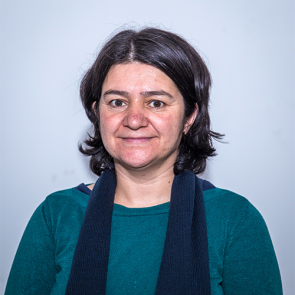
Kosar Bano is working as Gender and Adaptation Specialist, Livelihoods at ICIMOD.
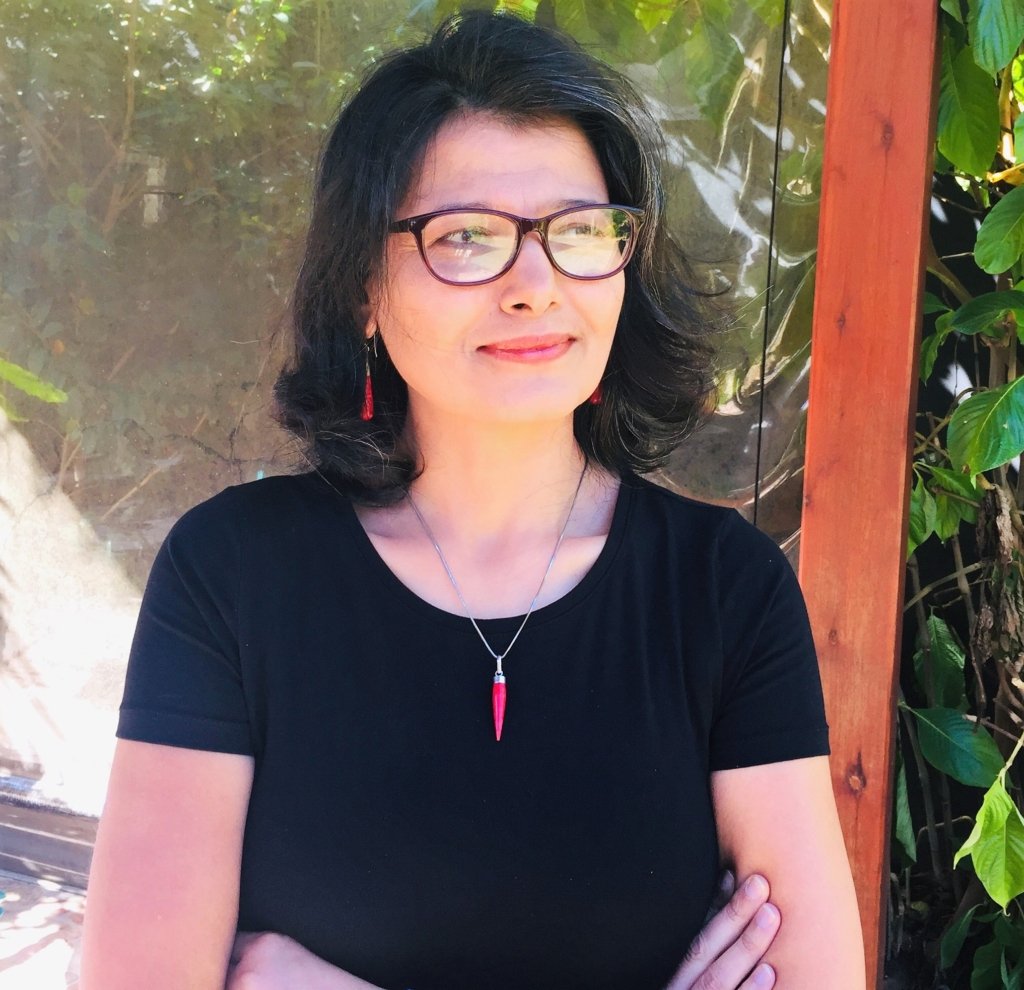
Dr Reshma Perveen Musofer is a teacher by profession, she did her PhD from the University of Queensland and working as a research fellow in STEM education for schools at the same university. She Twitts@ReshPar
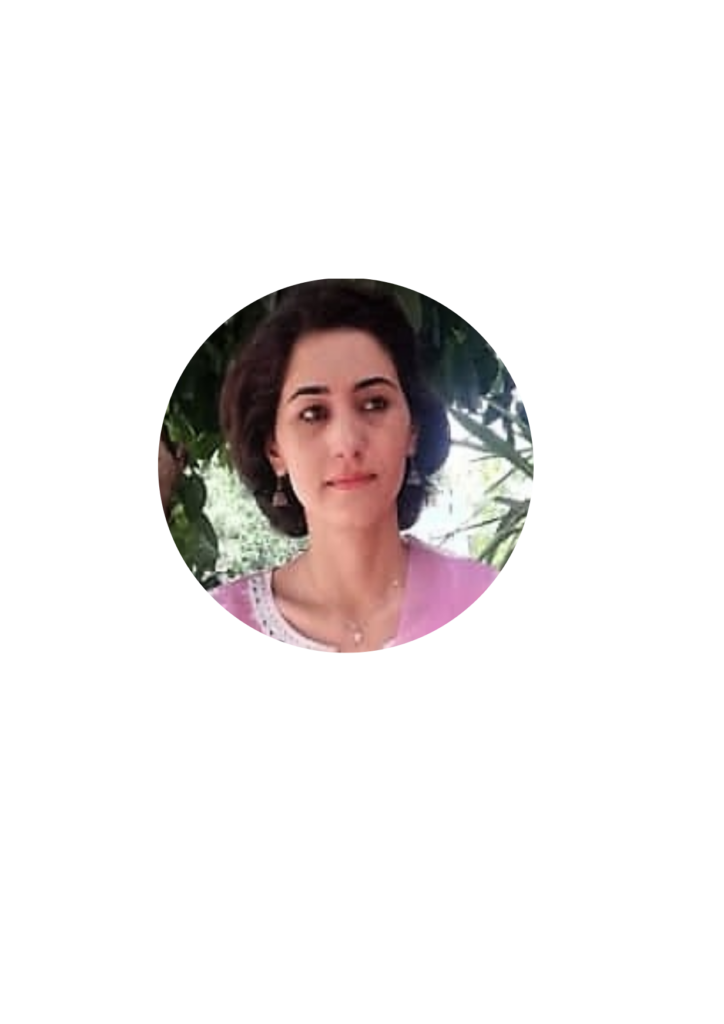
Rozina Ahmed is a social activist and doing MPhil from GC Lahore

